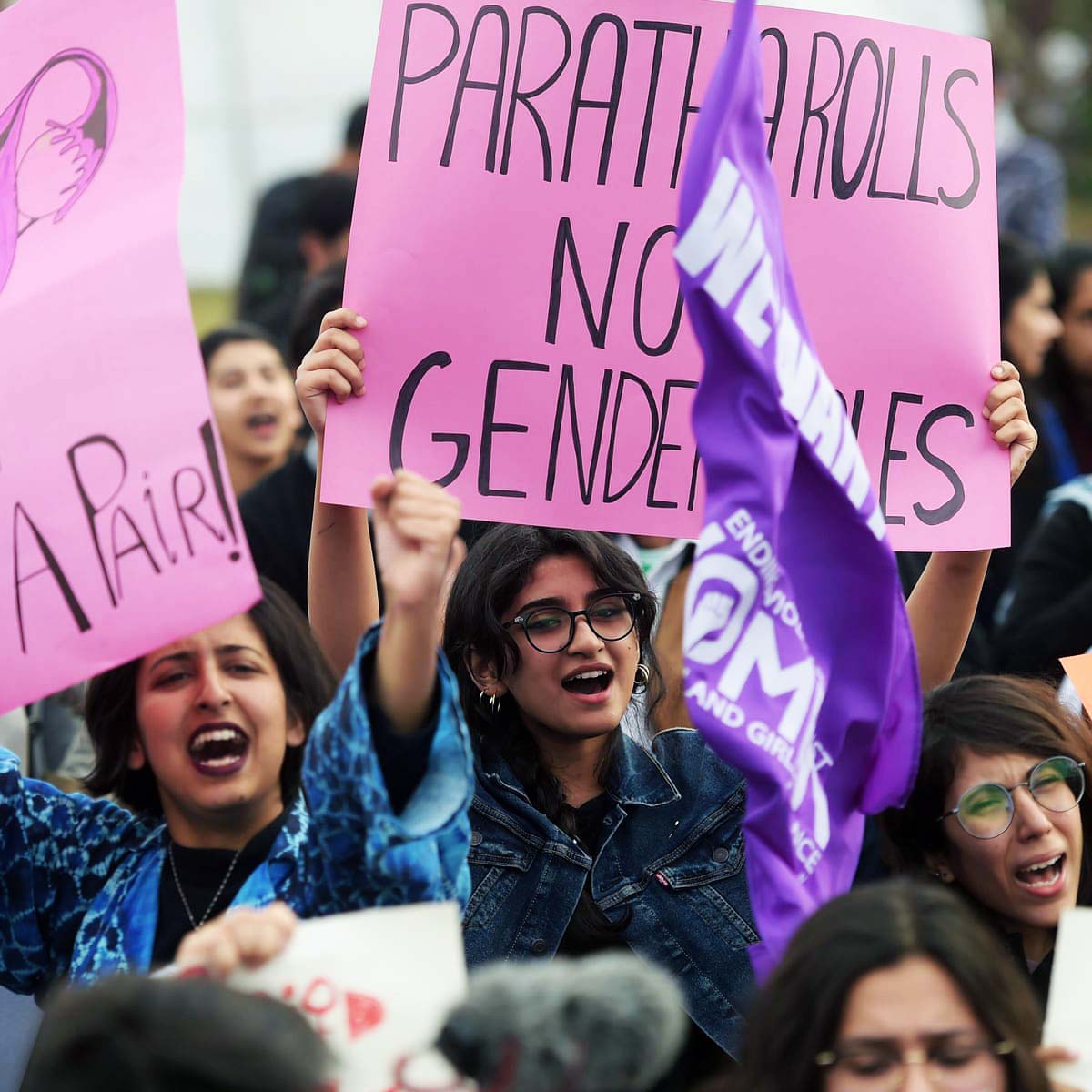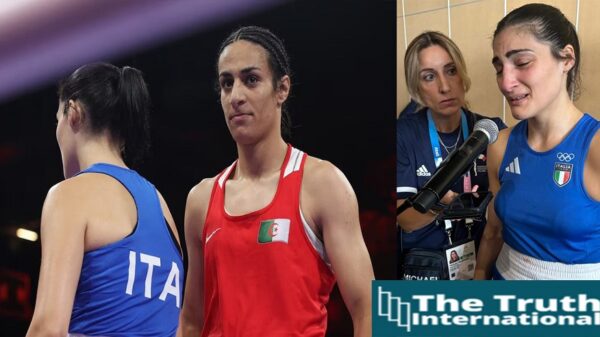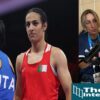Women’s March has given rise to the ruckus of epic proportions over social media, with everybody shouting at the top of their voices and nobody prepared to listen. Inclusive and holistic by its very nature, the social media is a contested space; divided and divisive, polarized and polarizing as our society itself.
The ever-vigilant and self-important gatekeeper, the mainstream media presents a more muted picture, amplifying one set of voices and fading out others.
Notwithstanding the negative reviews, it often garners, social media is the saving grace of our times. It has played a vital role when it comes to advocating for women’s rights, providing a platform for women to come forward and raise their voices.
According to a research conducted by the Qatar Computing Research Institute (QCRI), women in countries with larger gender inequities in offline life are more likely to have significant online presence. In Pakistan, for example, women on average have more followers on Google+ (25 vs. 16) and Twitter (600 vs. 222) than their male counterparts.
While women of our time are still underrepresented in the media generally, social media levels the playfield, allowing a wider array of voices to be heard, with or without traditional power to be heard. However, many of the challenges the women’s movement faces can be traced back to how various traditional media – broadcast, print and film – portray the movement and the issues it tries to address.
“The press is increasingly responsible for supplying the information and images through which we understand our lives”, says Amy Farrell, the Professor of American Studies and Women’s, Gender and Sexuality Studies at Dickinson College. “For any social movement, the media play a crucial role in shaping public consciousness and public policy. Journalists’ standard framing devices of selection, exclusion, emphasis, and tone can profoundly affect cultural perceptions.”
Every year marches are organized in major cities of Pakistan to highlight issues facing women and condemning incidents of violence against them as well as gender discrimination, economic exploitation, and misogyny. According to the organizers of these marches, the coverage of these events by the mainstream media tends to be quite biased and sensationalized. Hence the Aurat March Lahore decision to issue media passes to encourage women and transgender reporters to cover these events.
Traditional media is a series of filters through which a certain piece of information is dragged through before it hits the market and shapes the public perception. Social media however is a much more raw form when it comes to the generation of information. It is much similar to a dinner table conversation where one speaks what one thinks. Moreover, social media also prevents our opinions to become diverse in their nature. Due to social media filters that only show you information that is parallel to your previous search history, promote a confirmation bias of our own opinions.
Aurat March Lahore fell victim to various forms of bullying. Shmyla Khan, who manages the cyber harassment helpline at Digital Rights Foundation, stated that 22 social media accounts had been reported to FIA in the wake of online threats faced by the organizers and participants of Aurat March. Threats fell under the categories of abusive comments, non-consensual use of information, bullying, and defamation. Numerous tweets by Aurat March protesters surfaced claiming that they were being harassed due to their participation in the March.
Alongside this, Women March activists took the internet by storm as they shared their posters and slogans on social media letting their presence be known by the world proving that all women are united and standing strong to demand their rights. Instagram, Twitter, and Facebook flooded with slogans like “Mask ooper, ankhain neeche” and “Girls just wanna have fun walk home safe”.
Some women repurposed well-known lyrics to carry the message they wanted to convey. “Mundiya dupatta chad mera, consent bina chanta khaye ga” particularly settled in the hearts of young girls who found the struggle with consent a lifelong complication. All in all social media highlighted the very strong and raw emotions of women across the country. Women who despite certain obstacles still marched the streets of Lahore, Islamabad, Karachi, etc., to be heard and understood.
Conventional media on the other hand cuts out the emotions from the agenda along with any information that leans towards a bold topic. “There has been mass censorship over the years”, said Zebunnisa Burki, a woman journalist, in a recent interview. “It has become virtually impossible to give out a report to present whatever you want to say.”
Anchor-woman Asma Shirazi agrees: “There are a number of topics that TV and the print are not covering”. What is more, says she, “If you are watching a campaign on social media, you always need a counter-narrative to a narrative. People eventually turn to TV or papers to confirm what they see on social media.” Hence the lack of coverage on these matters causes discomfort within the society.
An article published recently by Dawn quotes Rizvan Saeed, a researcher, and development consultant who has been studying online activity against Aurat March, as saying: “In a country where even men are constricted by rigid patriarchal structures, the notion of women exercising their autonomy and agency, not to ask but to demand their rights, creates a deep sense of discomfort.”
Adds author Reem Khurshid: “Little wonder then that many would rather dismiss Aurat March by imagining that such women are not speaking for themselves, but at the behest of a ‘foreign hand’”.
The Pakistani women’s movement is still at a very early stage. Women are just starting to get used to their newfound voice. Demanding such changes in society takes a lot of blood, sweat, and tears – and time. This fragile progress needs to be protected by the state and civil society so that these nascent processes can continue to grow and hopefully someday bloom, leading to a much safer society for all genders.










